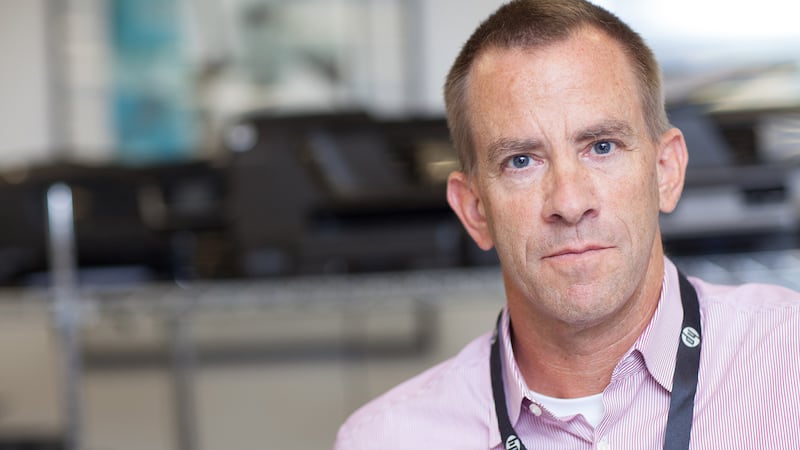Tim Weber sees a future where if your toaster breaks, the replacement won't come from a factory in China. It'll be 3D-printed for you down the street from you, in your color, and delivered right after it's made.
Weber, an Oregon native, has worked at Hewlett Packard for more than 20 years working on printers in two dimensions. But as Global Head of 3D Materials and Advanced Applications, he's in charge of moving into the next dimension of printing, including a multi-jet 3D printer HP says could improve speed by up to 10 times what had been possible before.
Weber will talk about the future of 3D printing at Portland's upcoming TechfestNW conference, a gathering of leading thinkers, startups and established companies that has showcased the the Pacific Northwest's talent and innovation for the past five years. The biggest such conference in Portland, it'll be held at the Portland Art Museum on March 23-24.
We talked to Weber before his appearance.
How important is 3D printing?
I'll frame it with the next industrial revolution.
The first is steam power and water power in Manchester, Britain. The next is the advent of electricity and assembly lines that allowed the United States to come into power. The third one allowed China to grow, with the advent of IT and the expansion of the supply chain.
[The next] is a bunch of megatrends coming together: artificial intelligence, the Amazon availability of everything. Bring in 3D materials, you'll see a lot more local manufacturing, a lot more automation.
What's that look like concretely?
If your toaster breaks in your house, through AI and big data, people will already know you need a new toaster. You'll select something that's already been personalized, it'll know what color your house is, what color your appliances are.
Rather than build overseas and ship it, they'll source it locally, through automation and 3D printing.
How far out is this scenario?
I think we're getting close to that already. A lot of these big data-mining things already know what your preferences are. Amazon as a marketplace, there are hundreds and hundreds of companies working on supply chain. With 3D printing, the value proposition is becoming economically equivalent. If I had to guess, I'd say 10 years.
What are the barriers to doing 3D manufacture today?
There's a couple problems: You can buy a nice 500 dollar printer that's very slow. You don't want the pieces from that to hold your airplane together, or your toaster. They're for prototyping.
One thing is speed; we'll be 10 times faster. One is cost. The third is building functional parts that can be used. The current materials just don't hold up. The common one most people think of are things you see on Kickstarter for 500 bucks. They do not create parts equivalent to injection molding, which is how most plastic parts are made today.
There are printers that make functional parts. The big example is GE and their injection port for their engine. It's a very expensive part, very high value, very complex. They're not going to make millions, they'll make hundreds. That's an example where it does make economic sense.
How fast is the technology moving forward?
We just launched our business, just started selling our hardware. We introduced one material, had a press event where we announced an open materials platform; the analogy is Apple's app ecosytem.
There are billions of dollars being driven off that ecosystem. We create a materials kit, people can develop materials, work with partners, and come to us and certify it through the system, make sure it is safe, reliable, and doesn't break the system.
What's the last thing you made yourself with a 3D printer?
This applications lab we opened in Corvallis, people said "Wow, this is like a Willy Wonka lab for materials." We used that theme. I gave out a 3D-printed golden ticket. It put me in the role of Willy Wonka.
